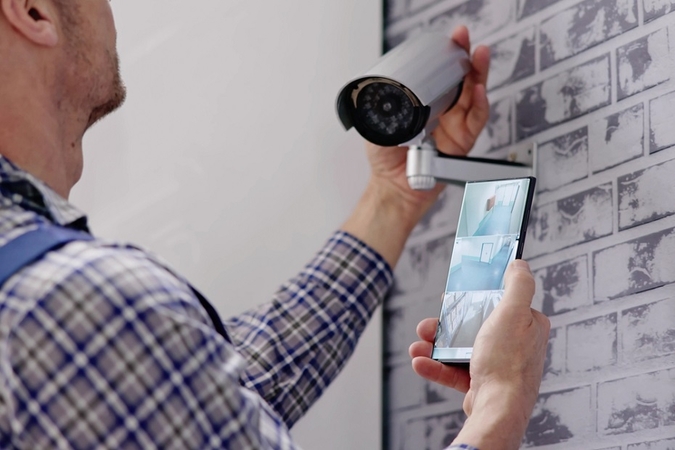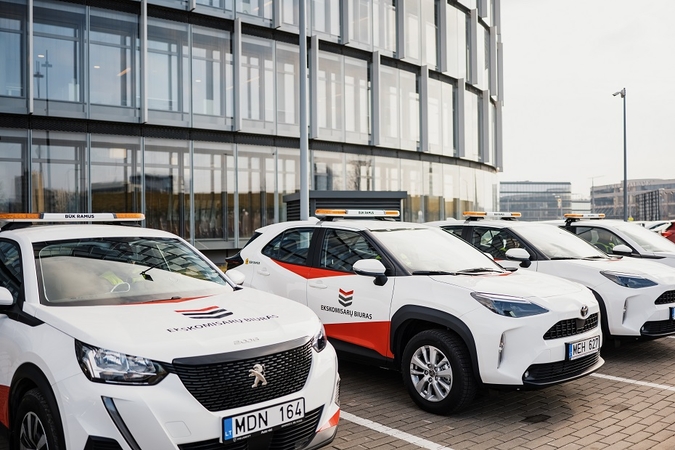In our century, when ships have the newest navigation technologies, seafarers still have problems when communicating with their relatives online. The internet connection on board is problematic.
Coordinate with ship owners
Each vessel is equipped with satellite communications. In accordance with the requirements of any company, a vessel has to be tracked on a web portal, showing its exact coordinates. Satellite-equipped vessels receive weather forecasts and other reports. They receive the information with online fax machines. Ships are equipped with a separate security system, so regular Internet connection may not be available.
Captain Juozas Lieponius, working for foreign vessels, claimed that ship companies are reluctant to allow crew members use special Skype-out computer programme to communicate with their relatives. The captain working for a German company told that he has managed to convince ship owners to provide crew members with an internet access point. With the permission of captain or his assistants, crew members are allowed to send emails to their relatives.
According to Mr. Lieponius, his company realizes that wider communication capabilities open up opportunities to hire better sailors. Some shipping companies are building ships, allowing sailors to take their families with them. However, these are still very rare exceptions.
Connection is too expensive
Why ships have such strict restrictions on the internet access, while it is so widely used around the world? The reason is simple: the Internet access on ships is supported via satellite; therefore, it is very expensive. Mr. Lieponius remembered that for satellite connection, his company has to pay 5 thousand dollars per month. Not in all parts of the world, the satellite connection is working properly. White-spots and problems occur in the parts of Indian and Pacific oceans and near Antarctica.
The chairman of Lithuanian Seamen Union Petras Bekeza claimed that the international maritime organization constantly raise questions about how to improve sailors and their communication with family members at home. None of the international conventions mention the requirement to improve such a communication.
“So far, it is left for marine trade unions and ship-owners. In collective agreements we provide seamen with at least an opportunity to contact their loved ones in the special cases,” – said Mr. Bekeza.
Other systems are in coastal areas ships. They have special antennas, which receive mobile phone signals. This also allows a use of Internet connection. However, such a system is available only in the radium of 20-30 sea miles of shore.
Miss communication
In order to compensate the loss of communication on board, special seafarers’ centers equipped with broadband access are available on their journeys. They also sell cheaper mobile phone cards for calls anywhere in the world. The Director of International Maritime Consultancy Mission Algirdas Grybas claimed that the Seafarers’ Centre is equipped with seven Internet access points. Sailors willingly enjoy Internet access there. However, it is noted that such a number of Internet access points is too low.
“Due to financial difficulties, we cannot provide a faster Internet connection. We have planned to use additional facilities for such a purpose, but lack money to start the restructuring,” said Mr. Grybas.
The Seafarers’ Centre has wireless access. Some seamen take their laptops with them, so they could use the Internet connection. The centre also helps seafarers to purchase cheaper laptops. According to Mr. Grybas, sailors are using this opportunity, although in America or England such computers are cheaper than in Lithuania. In the Seagarers’ Centre, special international maritime mobile cards are also distributed. For 10 American dollars, a card provides one hour of talk with relatives in the Philippines, China or India. Paradoxically, if such a card would be used for local calls, the money would disappear in 3-5 minutes.
Able to decode
Captain Juozas Liepuonius said that in the ships he sailed, nearly all of the crew members have laptops. Although there is no Internet connection on board, sailors find ways how to communicate while staying at a port. Sailors, especially the younger ones, are able to decode hotels and other institutions’ wireless communication systems and get online. Often sailors present themselves as guests from a hotel’s room. Sometimes, upon the arrival at the port, ship agents tell wireless communication codes. Part of seamen purchase special decoding equipment and other Internet devices.
Ordinary seamen are left without communication
The scientists of London University spoke about the problem of Internet access on board. The special study was carried out and thousands of seamen surveyed. As much as 80 per cent of respondents claimed that they never had an opportunity to communicate by electronic means while on a vessel. As much as 97 per cent sailors claimed never to have used electronic connection while on a vessel. At the same time, 50 per cent of respondents claimed that there are possibilities on board to use electronic means of communication. This means that in many cases ship-owners prohibit the use of expensive means of communication. In some vessels, during the period of a long trip, each seaman is provided with an opportunity to send an electronic message twice a month. Up to 85 per cent of surveyed seafarers use the Internet access on the Seafarers’ Centre and 82 per cent are calling back home because they have purchased cheaper seafarers mobile phone cards.



















Naujausi komentarai